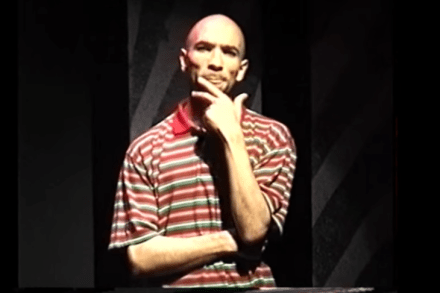Anthony Ekundayo Lennon and the left’s dilemma about race
I feel some sympathy for the director Anthony Ekundayo Lennon. According to the Sunday Times, which broke the story last weekend, he’s the beneficiary of an Arts Council England grant intended for ‘theatre practitioners of colour’ even though he’s white. To obtain the grant, Lennon described himself as ‘mixed heritage’ but what’s interesting about this case is that both the Arts Council and the theatre he’s linked to are standing by him. They have defended his right to identify as a person of colour, claiming it’s not an act of deception but a choice he’s made and which they respect. Needless to say, he’s come in for a fair amount of



















